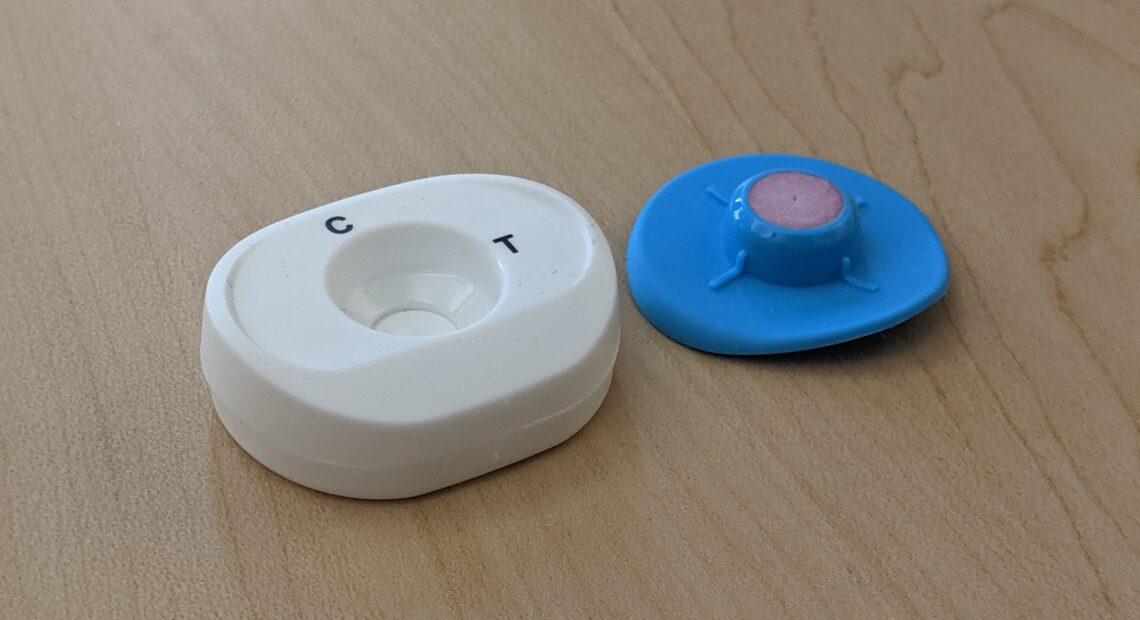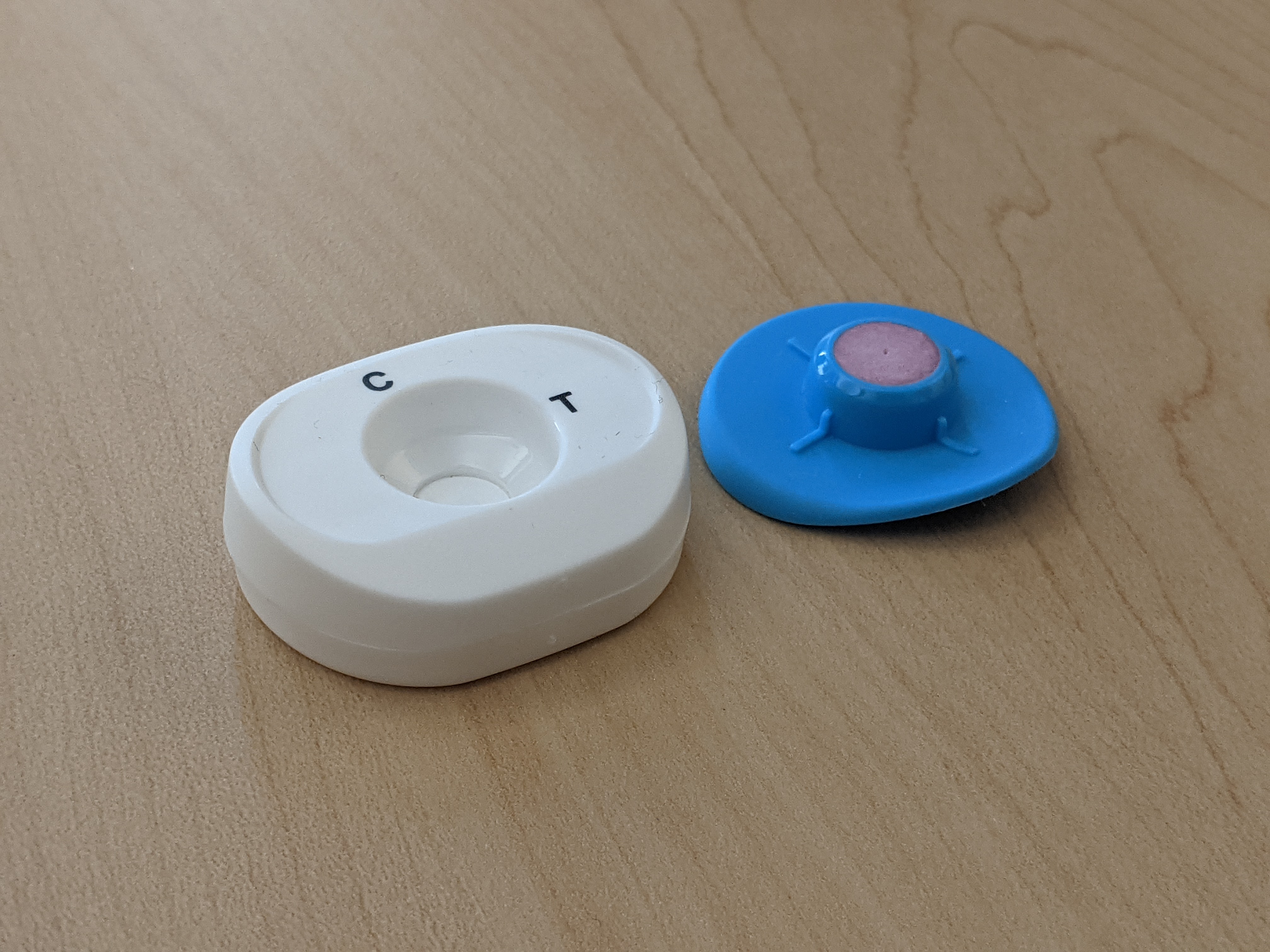
Professor’s blood test could increase access, speed of STD screening
Listen
(Runtime 1:19)
Read
A new test that uses just a drop of blood could help more people get tested and treated for a common, and frequently undetected, sexually transmitted infection.
Trichomoniasis, commonly known as “trich,” is the most common non-viral STI in the world. But trich is less well-known than other STIs, and rarely tested for, said John Alderete, a professor at Washington State University in the College of Veterinary Medicine, who developed the test.
Trich, which is parasitic instead of bacterial like other non-viral STIs, has historically not been reportable to public health agencies and is rarely tested for. Instead, testing and treatment for chlamydia, gonorrhea and syphilis were prioritized because they were considered more harmful, Alderete said.
“I think it’s because it was not appreciated that it causes any damage,” he said. “We know today that indeed it does to both women and men.”
The World Health Organization estimates there are roughly 250 million to 300 million trich cases worldwide, Alderete said, and around 10 million cases in the United States. He thinks that estimate is conservative.
Based on reporting from clinician scientists, Alderete said, roughly 7.5% of the general public is estimated to have trich. That would mean around 24 million people in the United States. According to the Centers for Disease Control, roughly 70% of people who get trich do not have symptoms.
“Twenty-four million people, walking around with trich, without symptoms, and they don’t know they have an infection,” he said.
When symptoms do present, they can include itching, burning, redness or soreness, discharge and discomfort while urinating.
Even though most people don’t get symptoms, the risks associated with the infection are serious. They include an increased risk of chlamydia and human papilloma virus, an increased risk of cervical cancer, three to four times more susceptibility to HIV, and infertility.
For men, though more research is needed, a growing body of evidence suggests trich may increase the likelihood of prostate cancer, Alderete said. Pregnant people with trich are at a higher risk for a preterm delivery. One study published in 2019 researching pregnant women found 50% had undiagnosed, persistent infections.
Though easily treated, most trich cases go undiagnosed and untested. Part of the problem is a lack of education, Alderete said, among the general public and medical providers. Another is that most current testing is either costly, unreliable, or takes days to see results.
“By that time, the patient is gone,” Alderete said. “You don’t know where he or she is, you can’t bring them back to the clinic to treat them. And so it becomes a real problem and a nightmare for the STD community.”
That’s an especially big problem for rural and low-resource communities in the United States and abroad.
Communities of color face health disparities that increase their risk of going undetected and untreated, Alderete said. In their paper, Alderete and co-author Hermes Chan noted that Black communities in the United States specifically face a higher rate of undiagnosed, persistent sexually transmitted infections.
Alderete’s test is different, though. Unlike other tests that require a sample of the parasite itself, his relies on testing for antibodies with just a droplet of the patient’s blood.
“You have a fingerprint. It’s unique to you, right? So we were able to discover a fingerprint for this organism. This fingerprint is a protein,” he said. “It turns out that if you are infected and exposed, your immune system will generate an antibody to this protein, to this fingerprint.”
The World Health Organization sets guidelines for point of care STI tests, Alderete said, which includes affordability, sensitivity, specificity, ease of use, a quick result, and deliverability. The test also needs to be usable without special equipment or training.
His test meets all of those criteria and detects antibodies within just five minutes. Unlike other tests, it’s easy to use and can be manufactured for less than other tests, Alderete said, though some cost would be added through distribution. That makes it a strong candidate for wider implementation, he said.
It’s not clear how soon the test will get funding for wider distribution yet, Alderete said, but he and the manufacturer are working with partners to do more testing. Once it’s been proven in clinical settings, he said, he expects to see more investment to bring the test to market.
“Clinics are disappearing in our rural communities,” he said. “We also have very low resource countries, or third world countries, and they have high rates of this STD as well.”
In addition to its convenience, the blood test is also less invasive than other methods and allows doctors to offer patients treatment during the same appointment, a term the medical community calls “point of care.”
More point of care treatment means better health outcomes, Alderete said, and he hopes for more awareness within the medical community about the STI.
“We have to continue to recognize the adverse health outcomes that come from this kind of an asymptomatic STD,” he said. “Just because you have no symptoms doesn’t mean you don’t have bad health problems.”
This report is made in partnership with Northwest Public Broadcasting, the Lewiston Tribune and the Moscow-Pullman Daily News.
















